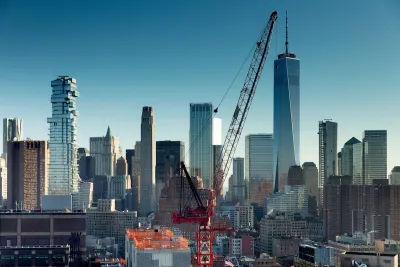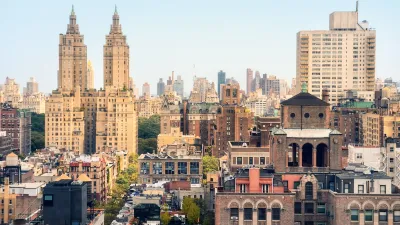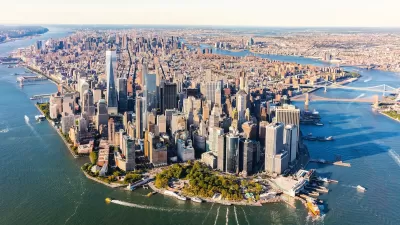A lawsuit brought by local lawmakers and community groups claims the plan failed to conduct a comprehensive environmental review.

The long-debated City of Yes zoning reform plan, championed by New York City Mayor Eric Adams, is facing a legal challenge from dozens of local legislators and community groups, according to a New York Post article by Craig McCarthy, Georgett Roberts, and Peter Senzamici.
The lawsuit argues that the administration did not conduct the necessary environmental reviews for the plan, which promotes increased density and transit-oriented development ot boost the city’s housing supply. The plan aims to support the building of 80,000 new housing units over the next 15 years — a number lower than the plan’s original goal.
As the authors explain, “The pro-development City of Yes had three environmental reviews but they were conducted as if City of Yes was three separate initiatives — carbon neutrality, economic opportunity and housing opportunity.” The suit argues that separating the reviews avoided the potential negative results of one comprehensive review.
The plan is primarily opposed by lawmakers and groups from less dense neighborhoods who argue that their infrastructure may not be able to support denser development and larger buildings. “The changes were approved by the council in December on a 31-20 vote after lengthy negotiations, which led to a partially scaled-back plan.”
FULL STORY: Eric Adams’ City of Yes housing plan in crisis after dozens of pols, community groups sue to end initiative

Alabama: Trump Terminates Settlements for Black Communities Harmed By Raw Sewage
Trump deemed the landmark civil rights agreement “illegal DEI and environmental justice policy.”

Planetizen Federal Action Tracker
A weekly monitor of how Trump’s orders and actions are impacting planners and planning in America.

The 120 Year Old Tiny Home Villages That Sheltered San Francisco’s Earthquake Refugees
More than a century ago, San Francisco mobilized to house thousands of residents displaced by the 1906 earthquake. Could their strategy offer a model for the present?

Opinion: California’s SB 79 Would Improve Housing Affordability and Transit Access
A proposed bill would legalize transit-oriented development statewide.

Record Temperatures Prompt Push for Environmental Justice Bills
Nevada legislators are proposing laws that would mandate heat mitigation measures to protect residents from the impacts of extreme heat.

Downtown Pittsburgh Set to Gain 1,300 New Housing Units
Pittsburgh’s office buildings, many of which date back to the early 20th century, are prime candidates for conversion to housing.
Urban Design for Planners 1: Software Tools
This six-course series explores essential urban design concepts using open source software and equips planners with the tools they need to participate fully in the urban design process.
Planning for Universal Design
Learn the tools for implementing Universal Design in planning regulations.
Clanton & Associates, Inc.
Jessamine County Fiscal Court
Institute for Housing and Urban Development Studies (IHS)
City of Grandview
Harvard GSD Executive Education
Toledo-Lucas County Plan Commissions
Salt Lake City
NYU Wagner Graduate School of Public Service





























